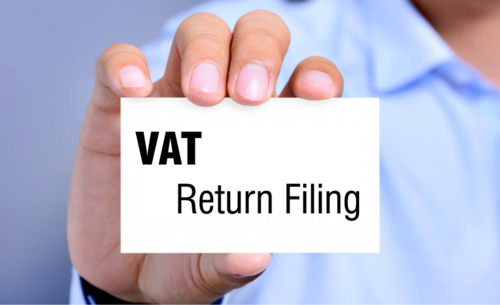Value Added Tax (VAT) was introduced in the UAE on January 1, 2018, at a standard rate of 5%. While VAT has streamlined taxation, businesses still face several challenges in compliance and accounting. Here, we explore seven common VAT issues and their solutions, specific to the UAE.
VAT Issues and Solutions
1. Incorrect VAT Filings

Issue: Errors in VAT filings can lead to penalties and fines. This is often due to misinterpretation of the regulations or manual errors during the filing process.
Solution: Regularly update your accounting systems to the latest VAT compliance standards and provide comprehensive training for your staff. Automating the filing process with advanced accounting software can significantly reduce errors and ensure accurate submissions.
2. Input VAT Recovery
Issue: Difficulty in reclaiming input VAT due to incorrect or incomplete documentation is a common problem. Missing invoices or non-compliant records can result in denied claims.
Solution: Maintain meticulous records and ensure all supplier invoices meet the FTA requirements. Regular audits and checks can help ensure all necessary documents are in place and compliant.
Call to Action: Optimize your input VAT recovery process. Contact AKM Accounting for expert advice and assistance.
3. Cross-Border Transactions
Issue: Handling VAT for international transactions can be complex due to varying regulations in different jurisdictions. This complexity can lead to compliance issues and potential fines.
Solution: Engage VAT consultants who specialize in cross-border transactions. They can help ensure compliance with both UAE and international VAT regulations, optimizing VAT recovery and minimizing liabilities.
Call to Action: Simplify cross-border VAT transactions. Reach out to AKM Accounting for specialized support.
4. Frequent Changes in VAT Regulations
Issue: Keeping up with frequent changes in VAT regulations can be challenging for businesses. Non-compliance due to outdated knowledge can result in fines.
Solution: Stay informed through regular updates from the Federal Tax Authority (FTA) and continuous professional development. Subscribing to newsletters and attending VAT seminars can also help keep your team updated.
5. VAT on Imports
Issue: Calculating and paying VAT on imported goods can be complicated. Mismanagement of import VAT can lead to compliance issues and financial penalties.
Solution: Use the reverse charge mechanism correctly and ensure all import documents are accurately prepared and submitted. Professional guidance can simplify the process and ensure compliance.
Call to Action: Manage import VAT effectively. Contact AKM Accounting for professional assistance.
6. Penalties and Fines
Issue: Late payments or incorrect VAT submissions can result in significant fines. This can affect the financial health of your business and its reputation.
Solution: Implement robust accounting systems and regular internal audits to ensure timely and accurate VAT submissions. Automating reminders and deadlines can also help avoid late payments.
Call to Action: Avoid penalties and fines with robust VAT management. Visit AKM Accounting for comprehensive VAT compliance services.
7. VAT Registration and Deregistration
Issue: Understanding the criteria for VAT registration and deregistration can be confusing. Incorrect handling of these processes can lead to compliance issues.
Solution: Ensure you meet the mandatory threshold for VAT registration and understand the conditions for deregistration. Professional advice can help navigate these processes smoothly.
Call to Action: Simplify VAT registration and deregistration. Contact AKM Accounting for expert guidance.
FAQs
What is the VAT rate in the UAE?
The standard VAT rate in the UAE is 5%.
Can I reclaim input VAT on all business expenses?
You can reclaim input VAT on most business expenses, provided the expenses are for taxable supplies and you have proper documentation.
What are the penalties for late VAT filings in the UAE?
Penalties for late VAT filings can include fines and interest on the unpaid tax. It is crucial to file and pay on time to avoid these penalties.
How do I handle VAT for international sales?
For international sales, ensure you understand the VAT implications in both the UAE and the destination country. Engaging a VAT consultant can help navigate these complexities.
What documents are required for VAT recovery?
To recover VAT, you need proper invoices from suppliers, import documents, and any other relevant financial records.
Conclusion
Navigating VAT and accounting issues in the UAE can be challenging, but with the right strategies and expert assistance, businesses can ensure compliance and optimize their tax processes. Regular updates, professional advice, and robust accounting systems are key to managing VAT effectively.

